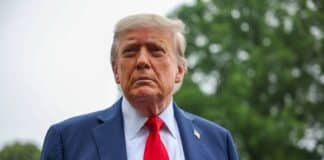The Biden family profits from the U.S. withdrawal from Afghanistan and China’s subsequent acquisition of Afghanistan’s lithium.
QUICK FACTS:
- Hunter Biden owns 10% of Chinese state-owned private equity firm Bohai Harvest RST.
- Bohai Harvest owns Contemporary Amprex Technology Co. Limited, the world’s largest lithium-ion battery maker.
- Days before Biden’s Afghan withdrawal, Contemporary Amprex Technology announced it was soon to raise $9 billion to fund six projects aimed at boosting its production capacity of lithium-ion batteries.
- Biden’s withdrawal from Afghanistan left the country’s $3 trillion in lithium reserves to Taliban-friendly China and its state-controlled equity firms like Hunter Biden’s Bohai, which owns the world’s largest lithium-ion battery maker.
TIMELINE:
- In 2009, Hunter Biden (son of Joe Biden) and Christopher Heinz (stepson of the former chairman of the Senate Committee on Foreign Relations, former U.S. Secretary of State, and current U.S. Special Presidential Envoy for Climate John Kerry) created the international private equity firm Rosemont Seneca Partners (here).
- Rosemont Seneca Partners would be officed less than a mile from Kerry’s 23-room Georgetown mansion, and just two miles from both Joe Biden’s then-office in the White House and his residence at the Naval Observatory.
- In June 2015, Rosemont Seneca obtained a 20% equity stake in Bohai Harvest RST, a Chinese private equity firm that Hunter Biden had been a board member of since its founding in 2013 until 2019.
- Bohai Harvest relies heavily on an international subsidiary of the state-owned Bank of China to finance its investments, according to The Intercept.
- Between June 2014 and October 2015, Rosemont Seneca Bohai wired between $10,000 and $150,979 to Hunter Biden for undisclosed purposes. In total, Hunter Biden received $708,302 from Rosemont Seneca Bohai, according to The Daily Caller.
- In October 2017, Hunter Biden’s company Skaneateles LLC took 10% (here) of the Bohai stake from Rosemont Seneca, Hunter investing $420,000.
- Hunter’s Skaneateles to this day still holds 10% of Bohai, despite the White House’s promise he “has been working to unwind his investment.”
- Bohai owns Contemporary Amprex Technology Co. Limited (CATL), the world’s largest lithium-ion battery maker, according to Financial Times. CATL is also a major supplier of batteries to Tesla Inc.’s Shanghai factory, notes The Wall Street Journal.
- Demand for lithium is projected to increase 40-fold above 2020 levels by 2040, according to the Institute for Energy Research (IER).
- CATL’s stock skyrocketed between November 2020 and February 2021 (when Joe Biden came to power), and is currently over $500 per share, up from under $200 the same time last year.

- China currently controls the supply chains for most of the production and/or processing of lithium, notes IER.
- In May 2021, Biden announced the U.S. will rely on “ally” countries such as China to supply the bulk of the metals needed to build electric vehicles and focus on processing them domestically into battery parts, according to Reuters.
- But Afghanistan is the “the Saudi Arabia of lithium” as it is naturally rich in the precious metal essential for electric vehicle batteries and battery storage technologies, like those produced by CATL.
- In early August 2021, Biden signed an executive order to make half of all new vehicle sales by 2030 zero emissions vehicles (here).
- Days before Biden’s botched mid-August withdrawal from Afghanistan, CATL said it was planning a private share placement to raise up to 58.2 billion yuan ($8.98 billion) to fund six projects aimed at boosting its production capacity of lithium-ion batteries, according to Reuters.
- Biden’s administration disastrously withdrew U.S. troops from Afghanistan in mid-August 2021.
- Only days after the U.S. military withdrew from Afghanistan, the Taliban took control of major cities and installed themselves in the presidential palace in Kabul.
- The Biden admin. left billions of dollars worth of U.S. weaponry to be seized by the Taliban.
- In early September 2021, the Taliban announced a partnership with China, namely that China will be their “main partner” in helping rebuild Afghanistan. The Taliban have an interest in China’s Belt and Road Initiative and see it as a revival of the ancient Silk Road, according to The Post Millennial.
- Biden’s withdrawal ultimately handed Afghanistan’s valued $3 trillion lithium reserves (here) to China.
Jon Fleetwood is Managing Editor for American Faith.






